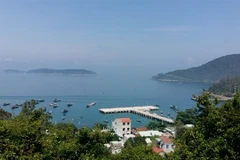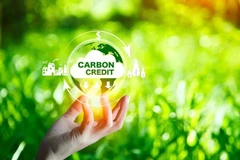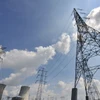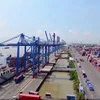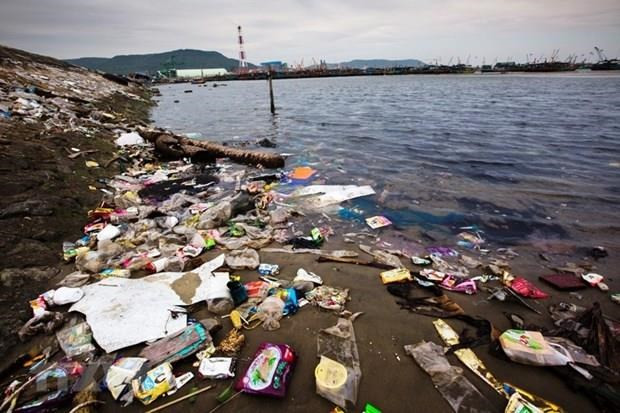 The volume of plastic waste released by human each year, including 13 million tonnes dumped into seas, is enough to cover the earth’s surface four times (Photo: VNA)
The volume of plastic waste released by human each year, including 13 million tonnes dumped into seas, is enough to cover the earth’s surface four times (Photo: VNA) Hanoi (VNA) – A seminar in Hanoi onJune 10 highlighted the fact that existing policies and laws on plastic wastemanagement have yet to match this type of waste’s impacts on the environmentand human health.
The event was held by the legal affairsdepartment of the Ministry of Natural Resources and Environment (MoNRE) and theInternational Union for Conservation of Nature (IUCN).
It was part of the MarPlastics project, whichdetects policy and knowledge loopholes, seeks effective solutions and proposepolicies to minimise marine plastic pollution.
Director of the MoNRE’s legal affairs departmentPhan Tuan Hung said plastic waste is a global environmental problem, attractinggreat attention of the international community. Each year, the volume ofplastic waste released by human, including 13 million tonnes dumped at sea, isenough to cover the earth’s surface four times. Plastic waste is negativelyaffecting the environment and human health.
According to international organisations,Vietnam emits about 1.8 million tonnes of plastic every year, standing 17thamong 109 countries in terms of the plastic waste volume released. Of thatamount, some 730,000 tonnes are released to the oceans, accounting for some 6percent of the world’s plastic volume dumped at sea. That has made the countrythe fourth biggest polluter of ocean plastic waste.
[Video: Living sustainably – a new green trend]
Hung noted it is very easy to see such key wordsas “plastic waste” and “fight plastic waste” on mass media and the internet atpresent. It shows that public awareness of plastic waste in Vietnam has beenimproved considerably.
Many anti-plastic movements and initiatives havebeen launched. Several supermarkets have said no to plastic bags and replacethem with environmentally friendly materials. A number of restaurants andcoffee shops have also eliminated single-use plastic products.
However, the official said, there remains muchthat needs to be done in terms of plastic waste management policies. Plastic iscurrently managed in the way other types of waste are, and there haven’t beenparticular regulations on plastic waste management, except for some on taxesfor plastic bags.
Existing policies and laws on plastic wastemanagement have yet to be on par with its impacts on the environment and humanhealth, as well as public attention to this issue. Therefore, it is necessaryto step up making policies and laws on this field in the time ahead, Hung said.
He underlined that those policies and lawsshould manage according to the lifecycle of plastics, from design, production,packaging and consumption to emission, collection, treatment and recycling.
Aside from economic tools like taxes and fees onplastic products, it is also a need to combine different policy tools,including setting technical standards, supporting the recycling ofenvironmentally friendly plastic products, and promoting producers andimporters’ sense of responsibility, he added.-VNA















